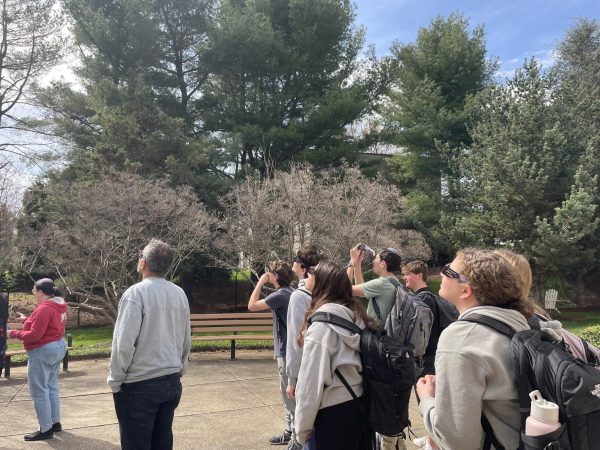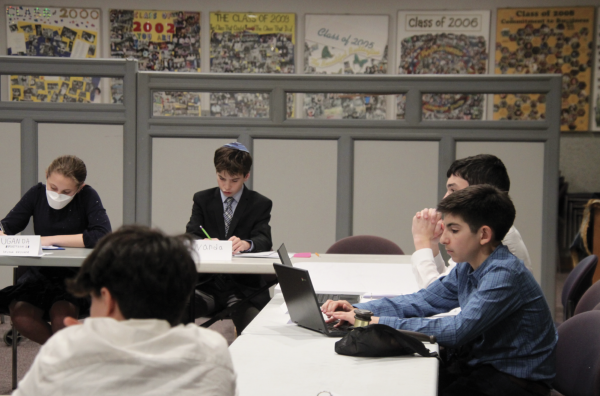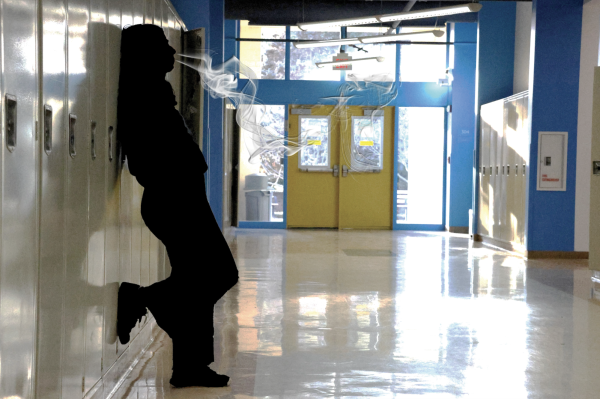Standardized tests open: Testing centers re-open with required safety precautions
November 6, 2020
The College Board and ACT, Inc. have canceled, postponed, reduced and moved hundreds of testing dates and locations during the pandemic, disrupting the standardized test-taking process for high school juniors and seniors.
These changes have delayed the process for many students, causing many colleges and universities to go test-optional for, at a minimum, the 2021 admissions year.
Test-optional means that students can choose not to submit test scores for any reason, including not testing entirely or simply not receiving their desired score. According to Director of College Counseling Sue Rexford, when a student applies to a college with a test-optional application, the other aspects of their application get weighted more heavily.
Senior Tess Mendelson’s early exam plans were unsuccessful, but she was ultimately able to register for and complete an ACT exam this past June.
“There was nothing in Montgomery County that was close, so I went to Hagerstown which is like an hour drive,” Mendelson said. “I walked in, everyone needed a mask, there were only five people in my room, we got [divider] screens and someone did not have a mask and they were not allowed in.”
Mendelson added that a large component of getting into a reduced capacity testing site is simply luck. While Mendelson was able to secure a spot, she knows many others whose test centers were closed multiple times or were required to relocate to centers quite far away, such as in West Virginia.
“You have to be flexible because things are always changing and you cannot even count on the test happening,” Mendelson said. “With the ACT, when you are studying for it you sort of create this bubble for yourself and you feel as though there is so much pressure on you to do well, and I think especially during COVID that is just amplified.”
Although the SAT or ACT testing process can feel quite defeating, it is important to remember why tests are being canceled or moved, Rexford points out.
“The overall process has caused a lot of confusion and frustration with students and parents, but if you think about it this way the main focus of all the decisions being made is for the safety and health of the students who either will or will not be allowed to test,” Rexford said.
Unlike Mendelson, senior Georgia Michaels chose to apply test-optional after only being able to take one SAT, which occurred prior to the rise of COVID-19 in the U.S.
“I felt like my score did not represent what I could have gotten on the SAT since I was not so prepared and I was thinking about taking it again … but all the schools that I was looking at were already test-optional before COVID,” Michaels said.
After completing her standardized test experience and having discussions with her college counselor, Michaels feels as though more colleges should make the switch to a test-optional application.
“Even before COVID, when I had my college meeting, I was told that more schools were going test-optional because they were realizing that standardized testing does not show a student’s true academic worth,” Michaels said. “Students have different things that affect them…[one standardized test] does not show their real knowledge. COVID is pushing that [idea] forward and more schools will stay test-optional which I think is a good thing.”


















